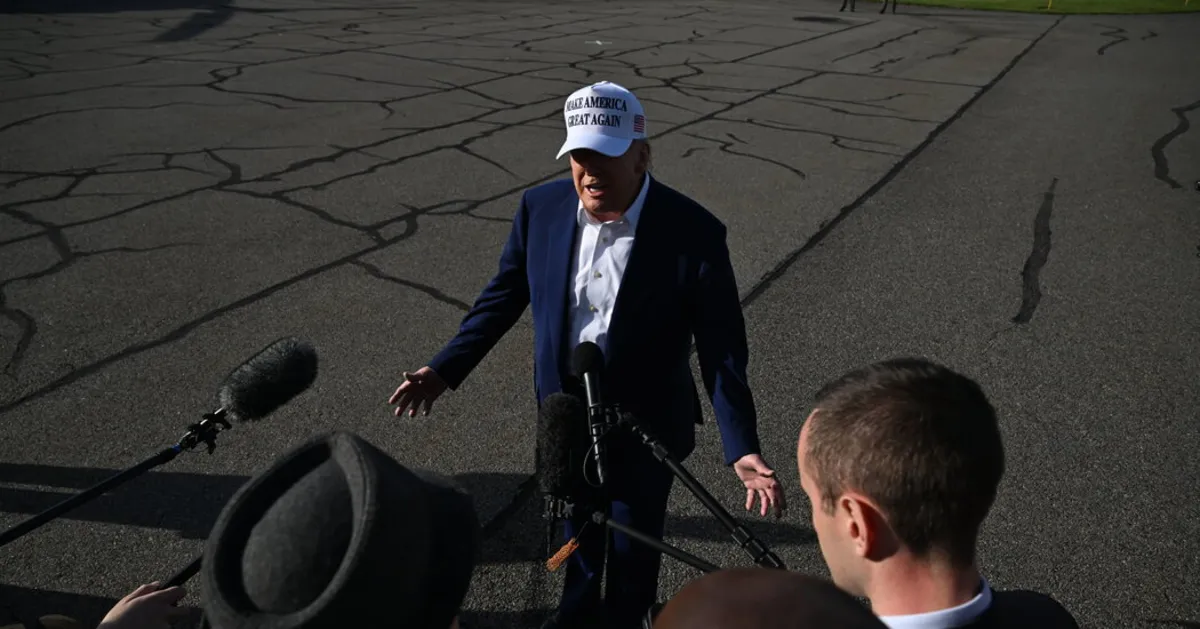
Former President Donald Trump has expressed significant frustration regarding ongoing trade negotiations with the European Union (E.U.). He criticized the E.U. for being slow to offer meaningful trade concessions during a crucial 90-day period aimed at reaching a satisfactory deal for the U.S. administration. However, his threats to impose steep tariffs on the E.U. have raised concerns about a potential trade war with one of the world's largest economies.
On Sunday, Mr. Trump seemed to soften his stance, declaring that trade talks would commence "rapidly," as conveyed by Ursula von der Leyen, the President of the European Commission, which serves as the executive arm of the E.U. In her social media update, von der Leyen noted that the E.U. required additional time to finalize a trade agreement but assured that discussions would move forward "swiftly and decisively." She underscored the importance of the U.S.-E.U. trade relationship, calling it the "world’s most consequential and close trade relationship."
This recent extension of negotiations marks another pivot by Trump, whose trade policies have introduced considerable uncertainty into the global economy. Just days before, he had recommended imposing a staggering 50% tariff on E.U. imports while criticizing Europe’s negotiating tactics and expressing a lack of interest in reaching an agreement. When questioned about potential concessions from Europe to avert tariffs, he stated, “I don’t know; we’re going to see what happens,” further adding that the E.U. had treated the U.S. poorly in the past.
The announcement of the 50% tariff threat followed a meeting between Treasury Secretary Scott Bessent and European counterparts at the G7 meetings in Canada. Although Bessent did not signal impending tariffs during the meeting, he defended them on Fox News, suggesting they might pressure the E.U. to act. He noted that Europe had a "collective action" problem, indicating that individual E.U. countries were unclear about how Brussels was negotiating.
Economists have expressed alarm that the proposed tariffs could lead to decreased global economic growth. If enacted, the 50% tariffs on E.U. imports and additional tariffs on smartphones could reduce growth by 0.2 percentage points and raise inflation by a similar margin, according to forecasts from Oxford Economics. Economists Ryan Sweet and Bernard Yaros indicated that the ongoing tariff threats are likely to be a tool for the Trump administration whenever negotiations reach an impasse.
In an attempt to secure a favorable trade deal, European leaders have previously offered to eliminate tariffs on industrial goods to zero if the U.S. reciprocates. These discussions also included commitments to boost purchases of U.S. energy. However, Trump and his advisors have remained unimpressed by these offers, continuing to criticize the E.U.'s value-added tax and other policies perceived as discriminatory against American businesses.
Meanwhile, internal divisions among Republican lawmakers have emerged regarding Trump's proposed legislation. Senator Ron Johnson accused the House of rushing through budget legislation that could exacerbate the national deficit. He noted that many Republicans share concerns about the impact of proposed cuts on vital programs like Medicaid and other assistance programs.
Senator Rand Paul has also voiced his opposition to the House package, claiming it lacks substantive measures to address the growing national debt. Their dissent poses challenges for Trump, who has urged lawmakers to expedite the passage of legislation aligned with his agenda.
In recent weeks, Trump has pivoted towards addressing what he perceives as the disenfranchisement of white men, altering the administration's focus on civil rights protections. While historically, efforts have sought to combat discrimination against minority groups, the current approach signals a shift in priorities. The administration has launched investigations into institutions accused of favoring diverse hiring practices.
As part of this strategy, investigations have been initiated into cities like Chicago and prestigious institutions such as Harvard University, where hiring practices are scrutinized for potential bias against white candidates. Critics argue that this approach undermines the very essence of civil rights protections, which should safeguard individuals from discrimination regardless of race or gender.
The evolving landscape of U.S.-E.U. trade negotiations and domestic policies under Trump's administration reveals a complex interplay of economic, political, and social factors. As the world watches closely, the implications of tariff threats and civil rights investigations will resonate beyond borders, shaping both international relationships and the domestic political arena.